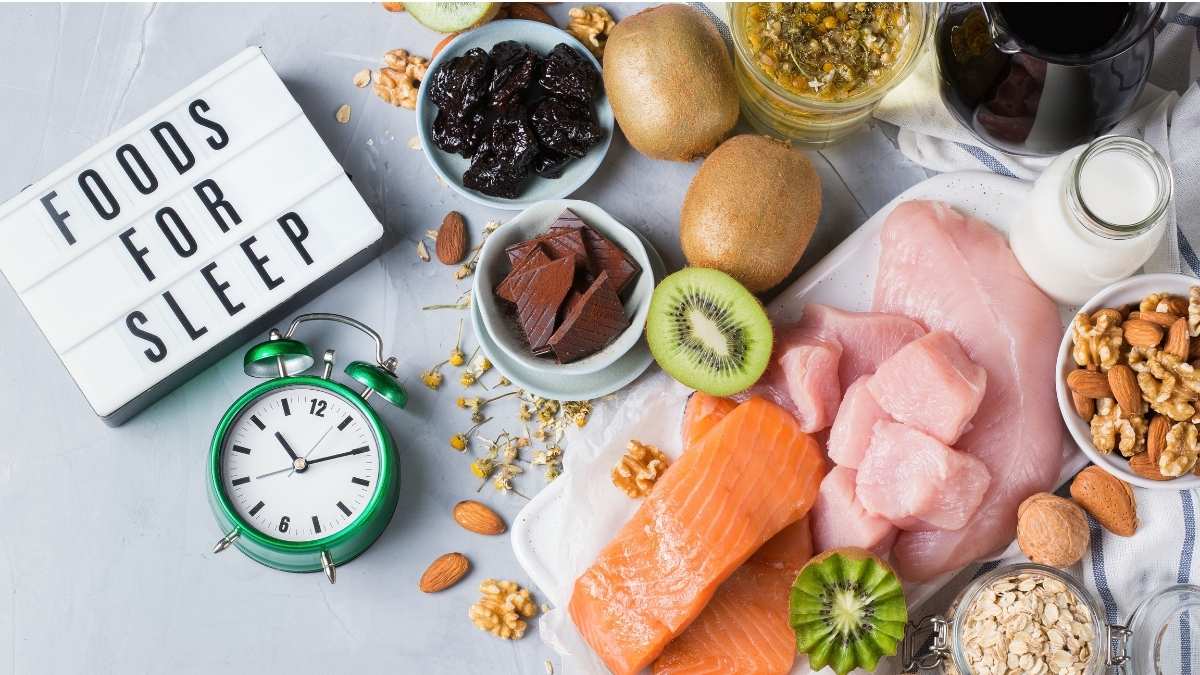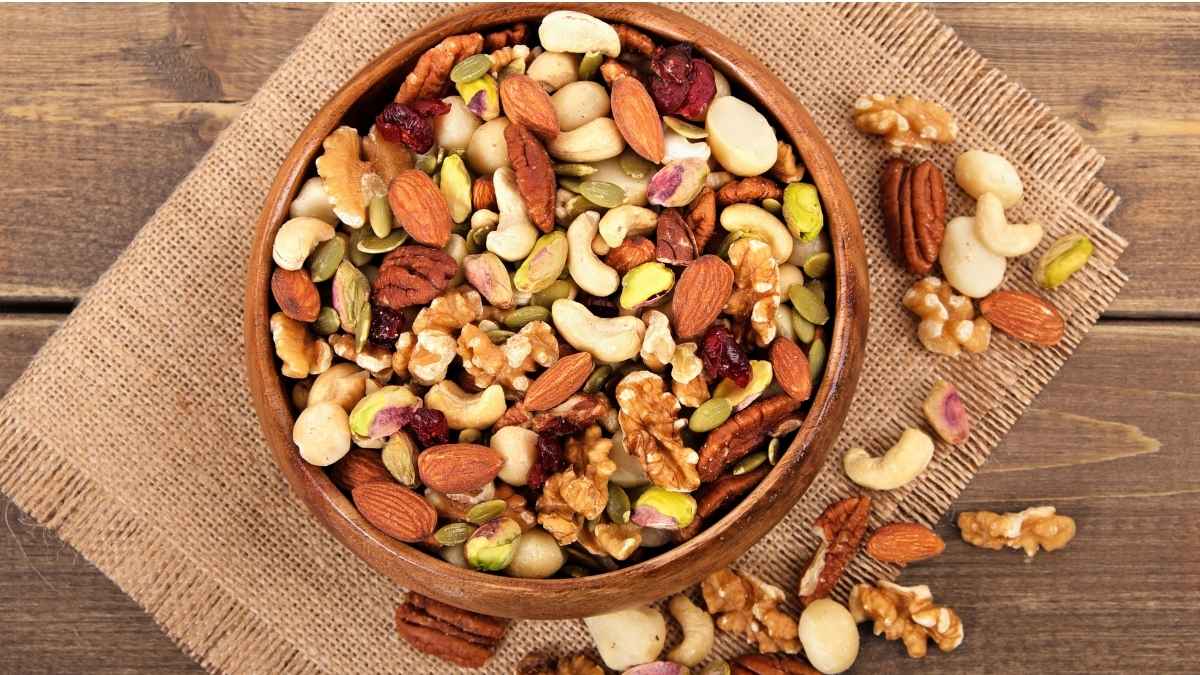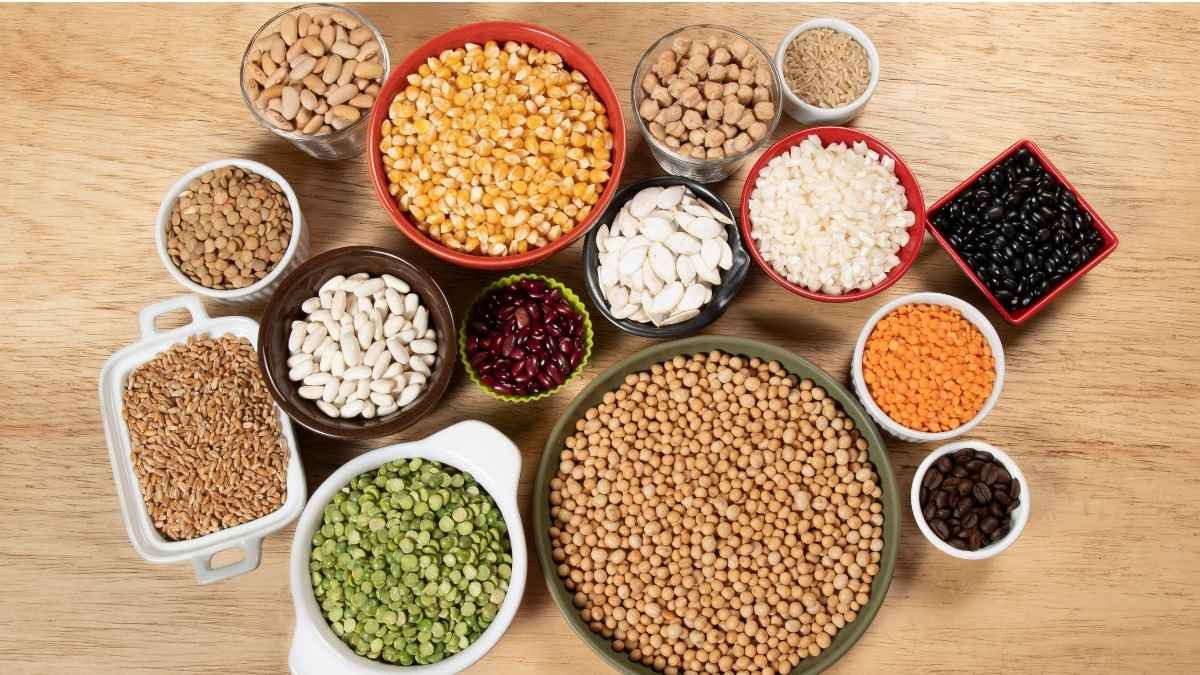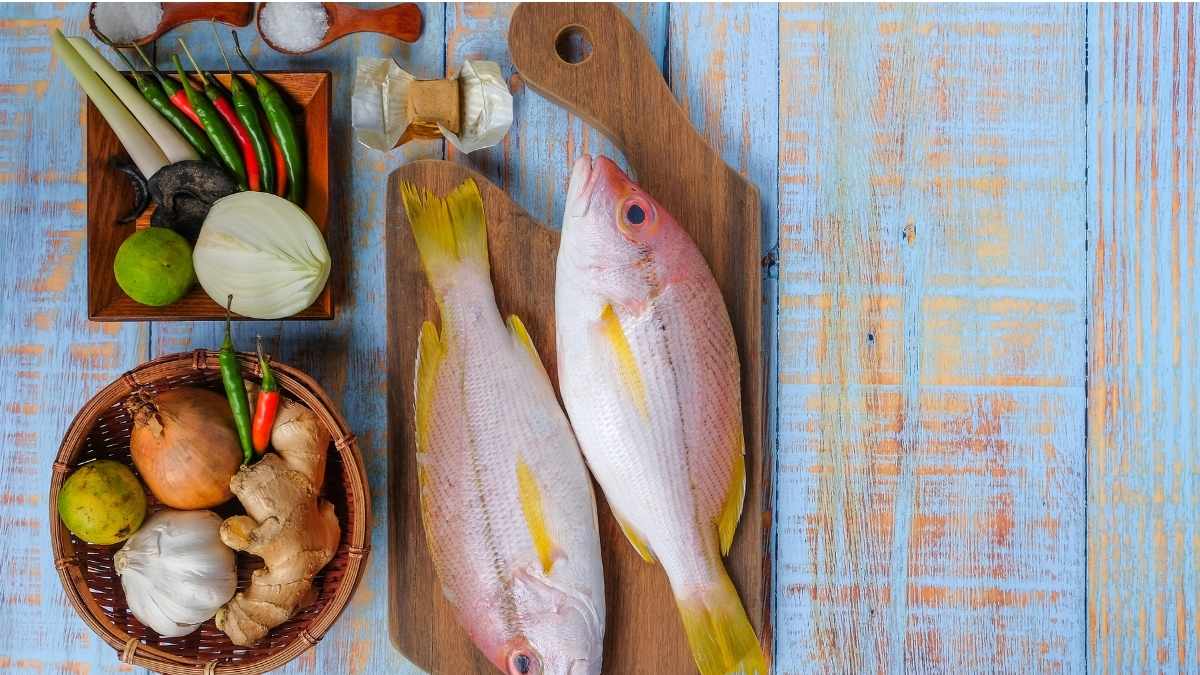Staring at the ceiling at 2 AM? Scrolling through dinner photos might hold the answer. You’re not alone—70 million Americans fight sleep troubles nightly. Nearly half of us unknowingly lack magnesium, a key mineral your brain desperately needs to power down.
What you ate tonight could be the silent saboteur of your rest. The wrong foods leave your nervous system buzzing. The right ones flip your body’s sleep switch.
You’ll discover 11 specific magnesium foods for sleep that calm your nervous system, spot 3 common drinks secretly wrecking your rest, and learn simple ways to time these foods that help you sleep. These natural insomnia remedies work with your body—not against it. Start tonight. Your best sleep isn’t complicated. It’s on your plate.
Why Magnesium is Your Sleep Superhero

You toss and turn every night. Your mind races when your head hits the pillow. Sound familiar? Here’s something that might surprise you: the answer to better sleep could be hiding in a simple mineral.
Magnesium is like a dimmer switch for your nervous system. When you have enough of it, your body knows how to calm down. When you don’t, everything stays wound up tight.
Here’s how it works. Magnesium turns on something called GABA neurotransmitters in your brain. Think of GABA as your body’s natural “chill pill.” It tells your nervous system to relax and get ready for sleep. Without enough magnesium, those GABA signals get weak. Your brain stays in high gear when it should be slowing down.
The connection between magnesium deficiency and sleep problems is real. Studies show that people with low magnesium levels struggle to fall asleep and stay asleep. Their sleep feels light and restless.
The numbers tell the story. Almost half of Americans (48%) don’t get enough magnesium from their diet. The average person only gets 66% of what they need each day. That’s a lot of tired people walking around.
But here’s the good news. Research found that taking 500mg of magnesium improved sleep quality by 40%. People fell asleep faster and woke up less during the night.
How much do you need? Adult men should aim for 400-420mg daily. Women need 310-320mg. Pregnant women need a bit more.
Think you might be low on magnesium? Watch for these signs:
- Muscle cramps or twitches
- Feeling tired even after sleep
- Restless legs at night
- Trouble falling asleep
- Waking up multiple times
Your body can’t make magnesium on its own. You have to get it from food or supplements. Many natural insomnia remedies include magnesium for good reason – it works.
The best part? Magnesium won’t make you groggy the next day like some sleep aids do. It helps your body do what it naturally wants to do: wind down and rest.
If you’ve tried everything else and still can’t sleep well, magnesium might be the missing piece. Sometimes the simplest solutions work best.
11 Magnesium-Rich Foods That Promote Deep Sleep

Your dinner plate might hold the key to better sleep. Instead of reaching for another sleeping pill, try filling your kitchen with these magnesium-packed foods that help you sleep naturally.
Getting enough magnesium from food is easier than you think. These 11 foods deliver the mineral your body craves for quality rest. Plus, they taste good and fit into meals you already love.
Nuts and Seeds

Pumpkin Seeds (151mg per oz) These little green powerhouses pack more magnesium than almost any other food. Just one ounce gives you about 40% of your daily magnesium needs. The magnesium in pumpkin seeds works with tryptophan to boost serotonin production. This combo helps your brain make melatonin, your natural sleep hormone.
Best time to eat: As an evening snack, about 2 hours before bed. Simple prep: Roast them with a pinch of salt for 10 minutes at 300°F. Perfect portion: A small handful (about 1 ounce) does the trick.
Almonds (80mg per oz) Almonds deliver steady magnesium along with healthy fats that help you feel satisfied. The magnesium relaxes your muscles while the protein stabilizes your blood sugar overnight. This prevents those 3 AM wake-ups caused by blood sugar crashes.
Best time to eat: With dinner or as a bedtime snack. Simple prep: Keep a small container of raw almonds ready to grab. Perfect portion: About 23 almonds equals one ounce.
Cashews (74mg per oz) Cashews are softer and sweeter than other nuts, making them perfect for people who find almonds too hard. The magnesium in cashews helps activate GABA receptors in your brain. GABA is like a natural tranquilizer that tells your nervous system to chill out.
Best time to eat: Mixed into dinner dishes or eaten alone after your evening meal. Simple prep: Add them to stir-fries or eat them straight from the bag. Perfect portion: About 18 cashews per ounce.
Leafy Greens and Vegetables

Spinach (157mg per cooked cup) Cooked spinach beats raw spinach for magnesium content. When you cook spinach, it shrinks down so you can eat more in each bite. The magnesium works with folate to support healthy neurotransmitter function. This helps your brain produce the chemicals needed for deep sleep.
Best time to eat: With dinner, since the fiber helps you feel full without being too heavy. Simple prep: Sauté with garlic and olive oil for 3 minutes. Perfect portion: One cooked cup equals about 6 cups of fresh spinach.
Swiss Chard (150mg per cooked cup) Swiss chard often gets overlooked, but it’s a magnesium superstar. The colorful stems contain extra minerals that support muscle relaxation. When your muscles relax, your mind follows. This makes it easier to drift off to sleep naturally.
Best time to eat: As a side dish with your main dinner. Simple prep: Chop and sauté the stems first, then add the leaves. Perfect portion: One cup of cooked chard provides nearly 40% of your daily magnesium.
Avocado (58mg per fruit) A whole avocado gives you solid magnesium plus healthy fats that help your body absorb the mineral better. The potassium in avocados works with magnesium to relax blood vessels and lower blood pressure. Lower blood pressure makes it easier for your body to enter sleep mode.
Best time to eat: With lunch or dinner, but avoid eating it too close to bedtime since the fat takes time to digest. Simple prep: Mash it with lime juice and salt for instant guacamole. Perfect portion: Half to one whole avocado per day.
Whole Grains and Legumes

Black Beans (120mg per cooked cup) Black beans combine magnesium with complex carbs that help tryptophan reach your brain. Tryptophan is the amino acid that makes you sleepy after Thanksgiving dinner. The fiber in black beans also feeds good gut bacteria, and a healthy gut makes better sleep chemicals.
Best time to eat: With lunch or early dinner to give your body time to digest. Simple prep: Rinse canned beans and add them to salads, soups, or rice dishes. Perfect portion: Half to one cup provides plenty of magnesium without making you too full.
Quinoa (118mg per cooked cup) Quinoa is technically a seed, but it cooks like a grain. It’s one of the few magnesium foods for sleep that also provides complete protein. The combination of magnesium and protein helps stabilize blood sugar levels overnight. Stable blood sugar means fewer sleep interruptions.
Best time to eat: As part of dinner, since it’s filling but not too heavy. Simple prep: Cook it like rice with a 2:1 water ratio for 15 minutes. Perfect portion: One cup of cooked quinoa makes a good side dish serving.
Brown Rice (84mg per cooked cup) Brown rice contains more magnesium than white rice because the mineral-rich bran layer stays intact. The complex carbs help your brain produce serotonin, which converts to melatonin later. This natural process works better than taking melatonin supplements.
Best time to eat: With dinner, about 3-4 hours before bed. Simple prep: Use a rice cooker or simmer covered for 45 minutes. Perfect portion: Three-quarters of a cup provides good magnesium without too many calories.
Fish and Natural Treats

Halibut (91mg per 3.5 oz) This mild white fish delivers magnesium along with omega-3 fats that reduce inflammation in your brain. Less brain inflammation means better sleep quality. The protein in halibut also provides tryptophan, which your body uses to make sleep hormones.
Best time to eat: For dinner, since fish digests easier than red meat before bed. Simple prep: Bake with lemon and herbs at 400°F for 15 minutes. Perfect portion: A 3.5-ounce serving is about the size of your palm.
Dark Chocolate (64mg per oz) Yes, chocolate made the list. But we’re talking about real dark chocolate with at least 70% cacao. The magnesium in dark chocolate helps relax your muscles and mind. Just don’t eat it too close to bedtime since it contains some caffeine.
Best time to eat: As an afternoon treat or right after dinner. Simple prep: Break off a square and let it melt on your tongue. Perfect portion: One ounce (about 3-4 squares) gives you magnesium without too much sugar.
These foods that help you sleep work best when you eat them regularly, not just when you’re desperate for rest. Start adding two or three to your daily meals and see how your sleep improves over the next few weeks.
3 Evening Drinks That Sabotage Your Sleep

That post-dinner drink might feel relaxing, but it could be wrecking your night. Here’s how alcohol, caffeine, and sugar ruin your rest—and what to sip instead.
1. Alcohol: The Nightcap Trap

Why it backfires:
Alcohol tricks you. It helps you fall asleep faster, but it hijacks your sleep cycle. Your brain misses out on REM sleep (the restorative dreaming phase), cutting it by up to 20% . As your body processes the alcohol, you get rebound alertness—waking you up around 3 AM. It also relaxes throat muscles, worsening snoring or sleep apnea by 25% .
When to stop:
4+ hours before bed . Example: Finish wine by 6 PM if you sleep at 10 PM.
Try instead:
- Tart cherry juice: Naturally boosts melatonin .
- Chamomile tea: Calms nerves without next-day grogginess .
2. Caffeinated Drinks: Stealing Deep Sleep

Why it backfires:
Coffee, soda, or energy drinks block adenosine (a chemical that makes you drowsy). Even small amounts after 2 PM slash sleep quality by 23% . Caffeine lingers for hours: half remains in your system 6+ hours after drinking it. This delays deep sleep, shortens total rest, and raises nighttime awakenings by 12 minutes .
When to stop:
8+ hours before bed . Example: No coffee after 2 PM for a 10 PM bedtime.
Try instead:
- Decaf herbal tea: Peppermint or ginger (caffeine-free).
- Warm milk: Contains tryptophan, promoting sleepiness .
3. High-Sugar Drinks: The Midnight Crash

Why it backfires:
Soda, sweet cocktails, or juice spike blood sugar. Your body then releases cortisol (a stress hormone)—increasing levels by 15%—to stabilize it. This triggers midnight wake-ups, hunger, or thirst . Studies show 83% of high-sugar consumers report poor sleep quality .
When to stop:
3+ hours before bed . Example: Skip dessert drinks after 7 PM.
Try instead:
- Protein shake: Stabilizes blood sugar (try almond milk + unsweetened protein powder) .
- Cinnamon tea: Regulates glucose naturally .
Quick Fixes for Better Sleep Tonight
- Alcohol swap: Dilute wine with sparkling water to cut intake.
- Decaf hack: Choose “decaf” coffee labeled water-processed (99% caffeine-free).
- Sugar cut: Mix seltzer with a splash of 100% pomegranate juice.
“Drinking sugar is like pouring rocket fuel into your tank at bedtime—you’ll crash mid-flight.”
Bottom line: Your body repairs itself during deep sleep. These drinks steal that time. Skip them tonight, and you’ll wake up clearer-headed, calmer, and truly refreshed.
How to Time Your Magnesium Intake for Better Sleep

Tossing and turning? What you eat and when you eat it matters. Getting enough magnesium helps calm your nervous system for sleep, but timing it wrong can mean missing its benefits. Here’s how to get it right.
1. When to Take Magnesium (The Sweet Spot)
- Best Timing: Aim for 1-2 hours before bed. This gives your body time to absorb the magnesium so it works as you drift off. Taking it right at bedtime might mean it kicks in too late.
- Empty Stomach? Maybe Not: Taking magnesium supplements on a completely empty stomach can cause nausea for some people. Having a small, magnesium-rich snack is often better.
2. Pair Magnesium Foods with Sleep Helpers
Don’t just eat magnesium alone. Pairing it with other nutrients boosts sleep quality:
- Calcium & Vitamin D: Help your body use magnesium better. Think yogurt with almonds.
- Tryptophan: This amino acid helps make sleep hormones. Pair pumpkin seeds (magnesium) with a small piece of turkey or banana (tryptophan).
- Avoid Blockers: Don’t pair magnesium-rich foods with large amounts of fiber (like bran cereals) or high-phytate foods (like raw spinach) right before bed. These can slightly hinder magnesium absorption. Save big salads for lunch!
3. Build Your Evening Routine Around Magnesium Foods
Make it easy and consistent:
- Sample Combos (1-2 hours before bed):
- A small bowl of plain yogurt + 2 tbsp pumpkin seeds + a few banana slices.
- A handful of almonds + 1 square of dark chocolate (70%+).
- A small glass of warm milk + a sprinkle of cinnamon.
- Prep for Busy Nights:
- Portion out nuts/seeds into small containers on Sunday. Grab one each evening.
- Keep frozen bananas ready to slice into yogurt.
- Have single-serve yogurt cups handy.
- Keep Portions Small: This is a sleep-promoting snack, not a big meal. A small handful (about 1 oz) of nuts or seeds, or 1/2 cup of yogurt is plenty.
Why Timing Wins
Taking your magnesium too early (like at dinner) means its peak effect might fade before sleep. Taking it too late means it hasn’t absorbed yet. Hitting that 1-2 hour window ensures it’s working as you fall asleep. Pairing it wisely makes it work even better.
“Getting magnesium is good. Getting it when your body needs it most for sleep is better.”
Try This Tonight:
- At 8:30 PM (for a 10:30 PM bed): Have your small yogurt & seeds or handful of almonds.
- Relax: Avoid screens. Do something calming.
- Notice: See if you fall asleep easier and wake up feeling more refreshed.
Finding the right magnesium foods for sleep and timing them right is a simple trick for deeper, more restful nights. Start tonight!
Simple Ways to Add More Sleep-Promoting Foods to Your Diet

Tired but can’t sleep? Your meals might be the fix. Adding sleep-friendly foods doesn’t need big changes. Here’s how to sneak them into your day, easily.
1. Breakfast Boost: Overnight Oats Power
- Do this: Mix oats, milk (or almond milk), chia seeds, and a spoonful of almond butter before bed.
- Why: Almonds and oats have magnesium. Chia seeds have tryptophan.
- Morning fix: Top with banana slices or walnuts. Ready in 2 minutes.
2. Lunch Upgrade: Greens & Grains
- Do this: Add 1 cup raw spinach to your sandwich or wrap. Swap white rice for quinoa in bowls.
- Why: Spinach has magnesium. Quinoa has protein and zinc for sleep hormone production.
- Tip: Use lemon juice dressing. Vitamin C helps absorb iron from spinach.
3. Dinner Win: Fish + Leafy Greens
- Do this: Bake salmon with olive oil. Serve over sautéed Swiss chard or kale.
- Why: Salmon has vitamin D. Swiss chard has magnesium and calcium. Together, they help melatonin production.
- Quick swap: Use frozen salmon fillets and pre-washed greens if short on time.
4. Smart Snacking: Seed Mix
- Do this: Mix pumpkin seeds, dried tart cherries, and a few dark chocolate chips (70%+).
- Why: Pumpkin seeds are packed with magnesium. Tart cherries have natural melatonin.
- Portion: Keep to ¼ cup. Use small bags for grab-and-go.
5. Meal Prep Shortcuts (15 Minutes Weekly):
- Sunday tasks:
- Cook 2 cups quinoa.
- Wash & chop greens (store in airtight container).
- Portion seed snacks into bags.
- Hard-boil 4 eggs for quick protein.
Simple Sleep-Food Shopping List
| Produce | Pantry | Proteins |
|---|---|---|
| Spinach | Oats | Salmon |
| Bananas | Almond butter | Eggs |
| Swiss chard/Kale | Pumpkin seeds | Plain yogurt |
| Tart cherries | Dark chocolate | Almond milk |
| Quinoa |
“Sleep starts in your kitchen, not your bedroom. Feed your rest.”
Try One Thing Tonight:
Swap your chips for the pumpkin seed mix after dinner. Notice if you feel calmer before bed. Small changes make big differences over time. Start easy!
Conclusion:
Tired of restless nights? Here’s what really works from what you’ve learned:
- Magnesium foods are powerful sleep helpers. Think almonds, seeds, and greens. They calm your body naturally.
- Timing and pairing matter most. Eat them 1-2 hours before bed. Combine them with foods like yogurt or bananas for a bigger effect.
- Skip the sleep-wrecking drinks. Alcohol, caffeine, and sugary beverages undo your good work.
- Small steps beat big leaps. Doing one thing consistently – like your evening seed snack – builds better sleep over time.
These natural insomnia remedies work with your body, not against it. You don’t need complicated routines or expensive pills.
“Good sleep isn’t about perfection. It’s about simple, smart choices repeated.”
Your Action Plan (Start Tonight!):
- Pick one magnesium-rich food: Add a handful of almonds or pumpkin seeds to your dinner.
- Track it: Notice for one week: Do you fall asleep easier? Wake up less? Feel more rested?
- Build on it: Next week, try adding one more tip from earlier.
Consistency is your secret weapon. One small change tonight can lead to quieter nights and brighter mornings. You’ve got this!


